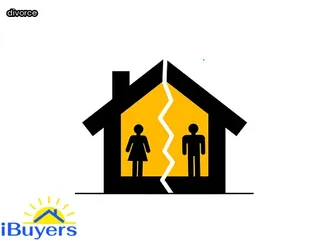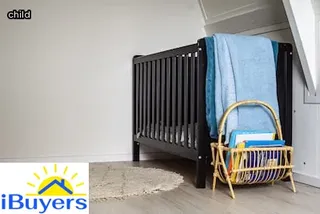Divorce can be a difficult time for both parties involved, and many people find themselves in the situation of having to decide who gets to stay in the house during the process. It is important to understand the legal implications of moving out before divorce as it could have serious financial implications for both involved.
Depending on what state you live in, there may be specific laws governing who has the right to stay in the house during divorce. In some states, either party has the right to stay in the house until a judge makes a ruling; however, it is important to note that just because someone has stayed in the home during divorce does not mean they will automatically keep it after the proceedings are over.
Courts take into consideration numerous factors when determining which party keeps any property acquired during marriage, and how much each party should receive upon division of marital assets. It is important for both parties to seek legal counsel prior to making any decisions about who stays in the house during divorce so that their rights are fully protected.

When it comes to divorce, one of the most difficult decisions is deciding who has the right to stay in the house. The decision should not be taken lightly since there are potential financial consequences that could arise from leaving the marital home.
Depending on the individual circumstances, both parties may have a legal right to stay in the house until a final ruling is made. It is important to consider factors such as equity or ownership of the property, mortgages and other debts associated with it, and whether or not alimony or spousal support will be involved.
If one spouse is ordered to leave, they may also be responsible for finding alternative housing which can add up quickly if they are unable to afford it on their own. Additionally, there are tax implications that come with selling a marital home during a divorce which could result in either party owing money to the IRS.
Ultimately, anyone considering leaving the marital home should consult with an experienced attorney who can help them assess all potential financial consequences before making any decisions.
When it comes to divorce, one of the most difficult and emotionally charged issues is who has the right to stay in the house. Most people are aware that the court will ultimately decide on this issue, but there may be options available that can help couples come to an agreement before their case goes to trial.
Some couples opt for a temporary separation where both parties remain in the house until they reach a settlement, while others may choose to divide their time between two residences or live apart until a decision is reached. Mediation and counseling can also be great tools for helping couples work through their differences and find a resolution that works for both of them.
It is important for couples considering divorce to explore all available options so they can make an informed decision about who should stay in the house during the proceedings.

It is important to make your intentions clear when moving out of the house during a divorce. Before you decide to move, discuss your decision with your spouse and create a plan that works for both of you.
Make sure to include the details of who will stay in the house and who will move out, as well as how any shared property or assets will be divided up. When it comes to deciding who stays in the house, consider factors such as which spouse has primary custody of any children involved and which spouse can better afford monthly living expenses or mortgage payments.
The court may also decide on certain conditions such as mutual access to the home for visitation purposes even if one person moves out. As always, it’s best practice to consult with a lawyer before making a decision about who has the right to stay in the house during a divorce.
When it comes to divorce, one of the most important things to consider is child custody and who has the right to stay in the house. In a situation where both parents have joint legal custody, it is usually up to a judge to decide which parent will keep the family home.
Factors that are typically taken into consideration include who can provide the best living environment for the child and who has been more involved in their upbringing. If one parent is awarded primary physical custody, that parent would be allowed to remain in the house while the other moves out.
If a court decides that neither parent should stay in the home, then they could make arrangements for another family member or guardian to care for the children until all parties come to an agreement. It's important for divorcing parents to understand their rights with regards to staying in the house during and after a divorce so that they can make informed decisions about what's best for their children.

When looking for a divorce attorney, it is important to find one who has experience with matters such as property division, spousal and child support, and determining who has the right to stay in the house during a divorce. You will want to look for an attorney who can provide clear answers about the legal rights of each spouse and how they may affect the situation.
It is also wise to inquire about the attorney's experience with cases that involve domestic violence or other difficult circumstances. Additionally, make sure the lawyer understands your particular situation and is willing to take on your case.
Finally, make sure you feel comfortable communicating with your lawyer and that they are willing to listen to your concerns and answer questions about the process. When selecting a divorce attorney, these are all important factors to consider before making a decision.
When going through a divorce, it can be difficult to know who has the right to stay in the house. In many cases, one spouse may choose to move out of the house so as not to disrupt the family dynamic or to maintain privacy.
If this is the case, it is important for that spouse to protect their property rights. First, they should speak with an attorney and understand their legal rights when it comes to staying in the house or leaving.
They should also make sure that all important documents are properly filed and stored away in a safe place in case of any disputes during the divorce process. Additionally, they should keep accurate records of any shared property so there is no question about who owns what during the divorce proceedings.
Finally, if there is any disagreement between spouses regarding who has the right to stay in the house during a divorce, they may want to consider seeking mediation or arbitration services from a third party mediator or lawyer who can help them reach a mutually beneficial agreement.

When couples decide to end their marriage, one of the most difficult decisions is determining who has the right to stay in the house during divorce proceedings. This can have a huge impact on the final outcome of a divorce, depending on the individual circumstances.
In some cases, both parties may agree that it is best for them to live separately while they go through the legal process. However, if one spouse decides to remain in the home, there are several factors that must be taken into consideration.
Firstly, state laws may dictate who has rights over the property and how those rights are determined. Additionally, any children of the marriage will need to be considered; if either parent wants to remain in the house with their child or children, then this could impact which spouse ultimately has the right to stay in residence during a divorce.
Finances also play an important role in this decision; if one party cannot afford alternative living arrangements, then it may be necessary for them to remain in their shared home until a settlement is reached. Understanding these issues and exploring all possible options can help mitigate potential conflicts between divorcing couples and ensure that everyone’s rights are respected throughout a divorce.
When it comes to identifying key factors that influence who gets the house during a divorce, there are several important considerations. The court will typically look at the marital status of the couple and any existing prenuptial agreements.
Financial contributions from each spouse can be a factor in determining who has the right to stay in the house, as well as any debt that is attached to the property. Special circumstances such as children living in the home or one spouse needing a secure place after separation can also be taken into account.
The state laws governing divorce can also have an impact on who is allowed to stay in the house during and after a divorce proceeding. Other details such as when the house was purchased and who has been living there prior to filing for divorce may also be considered by judges when deciding who has the right to stay in the house.

When analyzing the challenges associated with deciding who gets the house during a divorce, there are a variety of factors to consider. Financial stability, individual contributions to the marriage, and personal preferences all come into play.
Who has the right to stay in the house depends on many unique circumstances, such as whether one spouse has been living there longer than the other or if they have children together. Additionally, both spouses must determine if either party can afford to purchase the other's share of the home or if it is financially viable for them to remain in it together.
Furthermore, many couples opt for mediation or collaborative law when it comes to matters like dividing property or determining which spouse is allowed to stay in the home after divorce. Ultimately, each case is different and should be evaluated on its own merits so that both parties can receive an equitable resolution that works best for their situation.
When considering a divorce, understanding the laws in your state regarding separation before filing is important. Most states require that couples live separately for a period of time before a divorce can be finalized.
Some states do not provide specifics on duration of separation, while others have specific guidelines that must be followed. In some states, if either spouse remains in the house during separation, it is considered an indication that they do not intend to pursue a divorce; thus, they might not be eligible.
Additionally, courts may take into account who has been paying bills and keeping up with household responsibilities when determining who should remain in the home during the separation period. The court may also consider which spouse has been living in the home for longer or who has contributed more financially to the household when making its decision about who can stay in the residence during the separation period.
It's important to understand how these factors play out in your particular jurisdiction and consult with an attorney to ensure that you fully understand all applicable laws and regulations.

When going through a divorce, it can be tempting to want to remove yourself from the home you shared with your spouse. However, leaving your home before a settlement is reached can bring with it a number of pitfalls that should be carefully considered.
Not only could leaving the residence result in you losing any legal claim to the house, but it could also have an adverse effect on how assets are divided and affect potential alimony payments. Additionally, if children are involved, vacating the home can have a significant impact on child custody arrangements and visitation rights.
It is important to remember that unless there is an issue of safety or abuse, both parties have the right to stay in the house during a divorce. Before taking any action, discussing the situation with an experienced family law attorney will help ensure that you understand all of your options and can make informed decisions about your future living arrangements.
When considering the implications of who has the right to stay in the house during divorce, it is important to consider potential bargaining chips that can be lost if one spouse moves out. If one spouse leaves, they may no longer have access to vital documents or items of sentimental value that could be used as leverage in a divorce settlement.
Furthermore, remaining in the home allows a spouse to have an advantage when it comes to custody negotiations, as staying in the same environment provides stability for children and gives them time to adjust. Another factor that should be considered is whether one spouse holds title on the house and what are their rights under state law.
In some states, if one party holds title on the property they may retain exclusive occupancy and deny their partner access even if both parties still live there. Ultimately, when making decisions about who has the right to stay in the house during divorce, it is important to explore all potential legal ramifications before making a final decision.

When it comes to deciding who has the right to stay in the house during a divorce, it is important to consider whether you need a lawyer’s help for settling disputes. It is not uncommon for couples to disagree about who should be allowed to remain in the home.
If this is the case, consulting with a lawyer can be beneficial in helping each party understand their rights and responsibilities related to the property. A family law attorney can also provide legal guidance on how to divide marital assets and debts, as well as assist with any other issues that may arise throughout the process.
Additionally, if there are children involved, an experienced attorney can provide advice on child custody arrangements and child support payments. It’s important to note that even though seeking legal counsel may be an expensive endeavor, it can ultimately save time and money down the road by ensuring that all of your rights are protected throughout the divorce process.
When deciding whether to stay in the house during a divorce, both spouses must consider their individual benefits and risks. One of the biggest benefits of taking care of the dispute on your own is that it can save time and money by avoiding costly legal fees.
On the other hand, there are some risks associated with this decision. Not having an attorney to represent you can mean that important issues such as child custody or property division could be overlooked or not properly understood.
Additionally, without legal advice you may miss out on certain rights or entitlements under state law. In order to make sure that all potential issues are taken into account when making this important decision, it is important to carefully weigh the pros and cons of handling the situation yourself versus seeking legal assistance.
If your wife has filed for divorce, you may be wondering if you have to leave the house. The answer depends on a few factors, such as whether you own the home together or if one of you is renting it.
If you jointly own the home, then neither of you will have to leave. However, if one of you is renting the house, the landlord may require that tenant to move out after a divorce filing.
In some cases, a court may order one spouse to vacate the premises if there is evidence of abuse or other problems in the relationship. It's important to consider all your options and seek legal advice when making decisions about who stays in your home during a divorce.

When it comes to divorce, one of the most common questions is: Does a spouse have to leave the house? Unfortunately, there is no easy answer to this question. Generally speaking, both spouses have an equal right to stay in the house during the divorce process.
However, this is not always feasible and it may be necessary for one spouse to move out of the home. In order for a court to require one spouse to vacate the marital residence, certain criteria must be met including financial hardship or domestic violence.
If none of these factors are present, each party has a right to remain in the home until final settlement negotiations are completed or until a court orders otherwise. Ultimately it depends on individual circumstances and legal counsel should be consulted in order to determine if one spouse needs to leave the home during a divorce.
When couples divorce, one of the most important decisions they will have to make is how to split their shared home. It is generally accepted that both parties have a right to stay in the house until the divorce is finalized, however there are other considerations to consider.
The amount of time each party has been living in the house can be a factor when determining who gets to remain in the residence during the proceedings. In some cases, if one party has been living there significantly longer than the other, they may be entitled to stay in the home until further arrangements can be made.
Additionally, if one party cannot afford alternate housing or if there are children involved, then this could also influence who stays and who must leave. Ultimately, it's up to each individual couple to decide who has the right to stay in their house during a divorce and negotiate an agreement that works for both parties.
When it comes to divorce, there are many considerations to take into account. One of the most important is who has the right to stay in the house during the divorce proceedings.
While some couples may agree that one spouse should leave, it is important to note that there can be serious consequences for doing so. In many cases, leaving the home without permission can have a negative impact on child custody and visitation rights, spousal support payments, and other legal matters that may arise during a divorce.
Furthermore, leaving without permission could result in an eviction or even criminal charges if done unlawfully. For these reasons, it is essential to understand your legal rights before making any decisions regarding who should stay in the house during a divorce.
Ultimately, understanding these rights and consulting with a professional attorney can help ensure that you make the best decisions possible when it comes to staying in your home during a divorce.